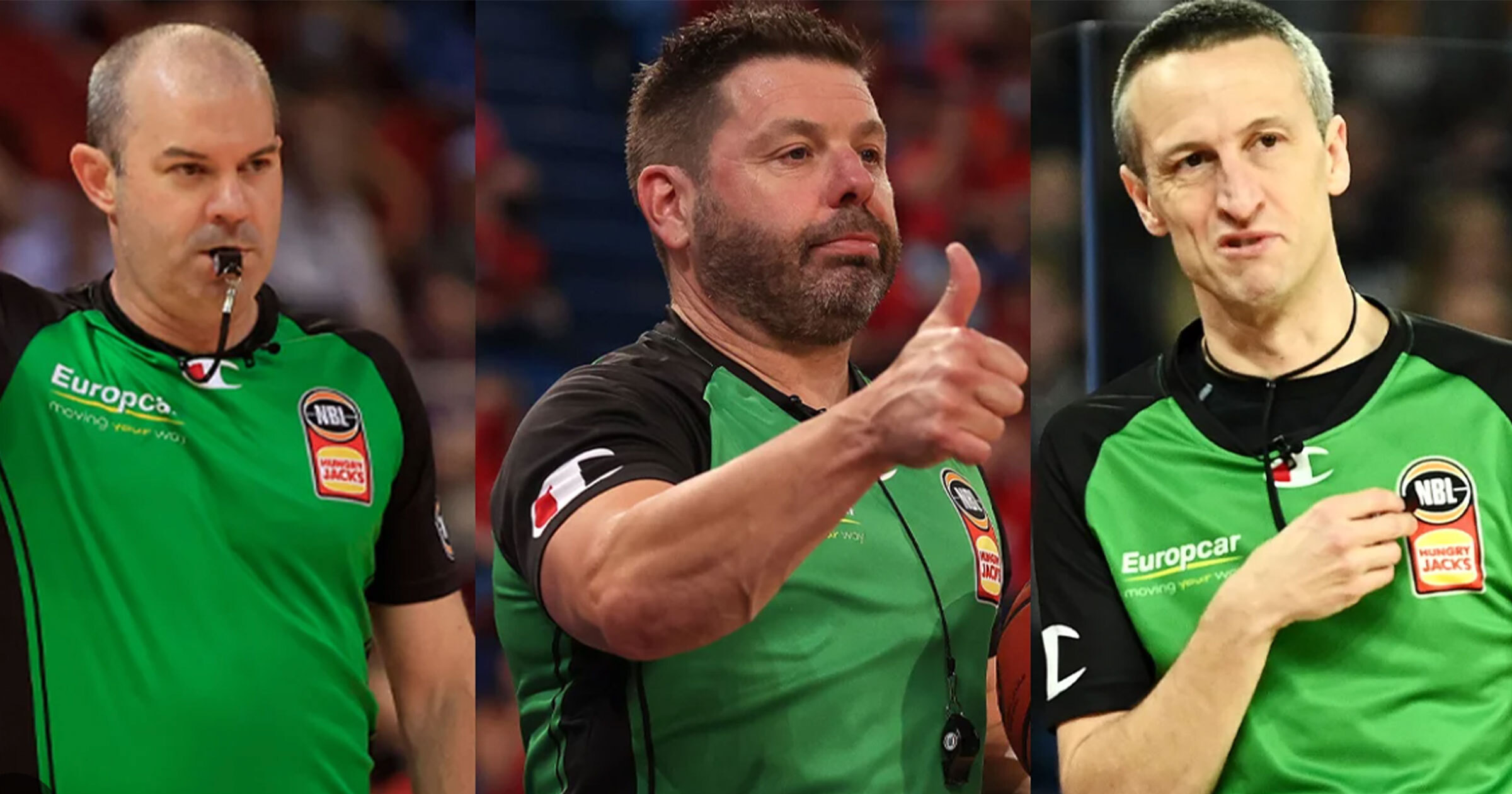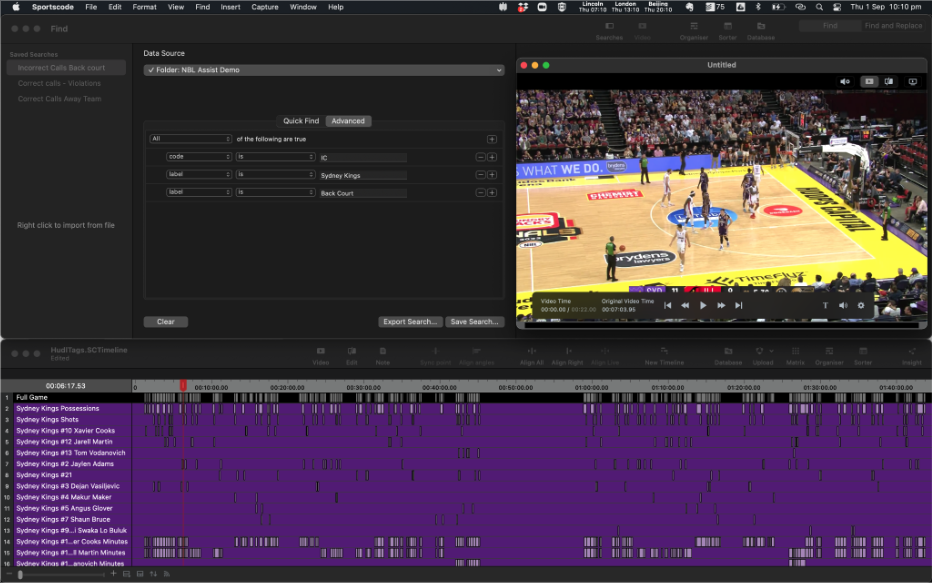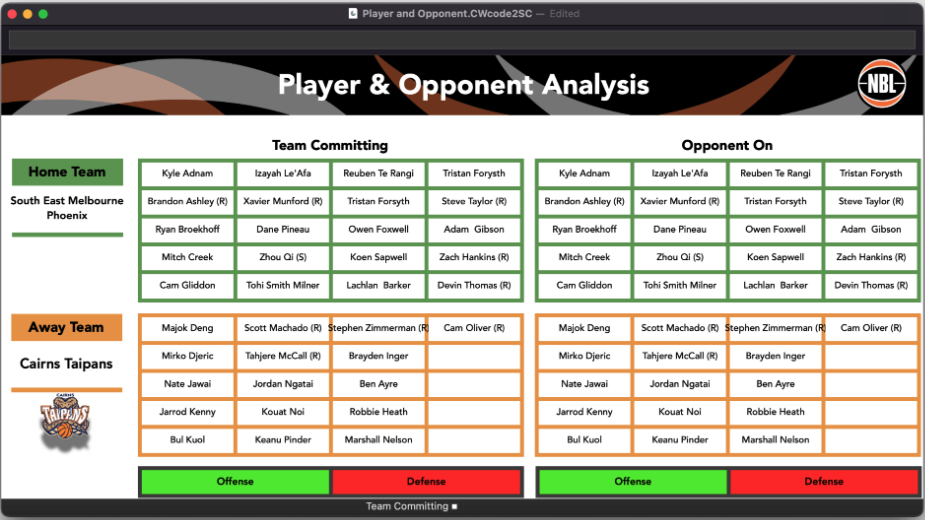How Video Analysis is Creating Better Basketball Referees in the NBL
Quality officiating is one of the most vital – but often overlooked – elements of any successful sport. Players, coaches and supporters are quick to complain that a bad decision can ruin a contest, but rarely notice referees when they perform to a consistently high standard. For any league, improving officiating is crucial to long-term progress and avoiding controversy.
At Australia's National Basketball League, Scott Butler, the Head of Referees knows this as well as anybody. With no systematic review processes in place when he initially started the role just over five years ago, Scott has worked alongside Hudl to build perhaps the most advanced evidence-based system to review the performance of match officials anywhere in the world. The improvement in standards has been steady but remarkable.
"At this level we are not coaching referees on rules - we are being much smarter with how we provide feedback to our officials on each game," says Butler. After all, any official knows the rulebook. How the NBL uses Hudl Sportscode is through measuring accuracy, providing data and giving referees detailed, video-based feedback to help them enhance their own performance.
"Our data collection process is central to our system and has evolved over time" says Butler. "As a starting point, we code correct calls, incorrect calls, incorrect no calls - where the referee has incorrectly chosen not to make a decision and correct no calls - when the official has used their judgment and correctly not blown their whistle." Alongside this, they label each type of play, the players involved, game-state information such as match quarter and where it has happened on the court, each official, teams, venue and so on.
This data is then used beyond the post game review coaching process, "it allows us to identify areas to target for education, set benchmarks, inform selection decisions, report upward to management and respond to team queries."

More than 180,000 sports teams across the globe utilize Hudl products, from Premier League football clubs to US university and college teams. And the same principles of pinpoint data, backed by a record of specific video evidence, is the ideal way to give referees and officials feedback on their performance, just as it is for players and athletes.
One of the most important things from Butler’s perspective is being able to detect any outlying trends – whether from a particular official, or for/against a particular team or player.
“What we're doing is using Hudl's advanced-find features so we can locate any particular instances in time. So if I want to look up every incorrect no-call for a particular team and I want to refine the occurrence of the play, in the backcourt, I can do so. And we've gone to the next level, where we can view the referee that made that decision, the type of play that was run, the player that was in offense or defense – and their opponent, so who was guarding them, and were they an offense or defense.
For example, at one point we identified that a referee was having a problem with a particular team. On closer inspection it was actually due to the style of a particular player, so we worked individually with that referee and provided targeted coaching."

One common gripe heard across sports worldwide, from fans and coaches, is that referees will be influenced by the crowd in favor of giving decisions to a home team. Top officials are trained in removing this unconscious bias. But by using Hudl Sportscode data, the NBL is able to monitor and examine real-life outcomes.
“There is international research across various sports that suggests there is some sense of home vs. away bias. Whilst the bias may be subconscious it needs to be measured to understand the depth and extent of impact it has on any given game.” says Butler. “We now have this data and we have now progressed to a point where over the course of a season this bias is almost negligible. Where we do identify outliers from a specific game or referee we use our analytics to identify coaching or performance management opportunities.
"The basic concept we follow is that you can improve what you measure. We track trends in the data over time according to our benchmarks. If needed we can drill down to differences between particular teams, and if we identify something, we can then investigate further. Is this difference due to a particular referee, player or type of play? So we use this data to identify the cause, then to provide targeted structure to our education to improve our decision making."
This transparency is important to the teams involved, but so is protecting officials when analyzing and giving feedback on their performance. The NBL has hard evidence that the approach is working.
“Across our five-year journey, we're benchmarking and reporting on every round of games,” says Butler. “Every single season our baseline has improved. Its a very positive sign that we are now in a position where we can identify an issue, address it and then move on to try and improve further"

Analyzing the data after each round of games is an important factor for the basketball league as it enables them to spot and examine any anomalies before they form a long-term pattern. Is a particular player getting a disproportionate number of calls in their favor or against them? And is that coming via a particular type of play or from a particular official?
"We now have systems in place to monitor our performance each round and crucially, every number we have is linked to video. This means we can quickly identify any issues and then take appropriate steps to address it, which could occur through education and training or inform selection decisions on officials for games."
Coming from an employment law background, Butler believes that eliminating bias in decision making extends beyond the basketball court. "It’s equally important that we make informed decisions when selecting officials for games."
“Across our five-year journey, we're benchmarking and reporting on every round of games. Every single season our baseline has improved. Its a very positive sign that we are now in a position where we can identify an issue, address it and then move on to try and improve further"
